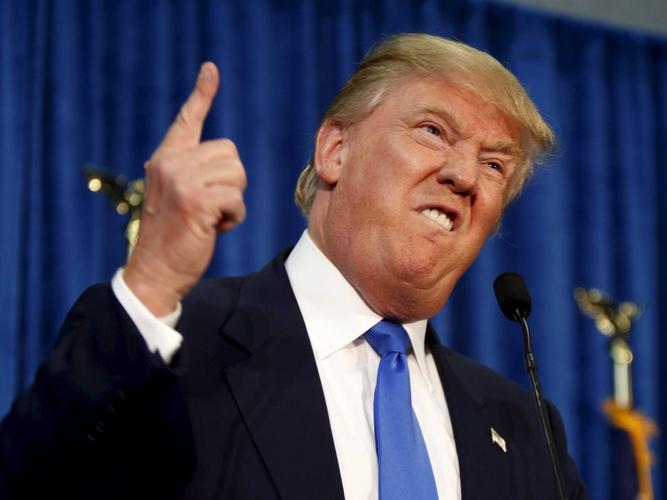
Wall Street economists have warned that if the tariff policy put forward by former President Donald Trump, the Republican presidential candidate, is realized, inflation and a recession are feared.
During his campaign speech in North Carolina on Wednesday, Trump said that he would impose universal tariffs on all U.S. imports, saying that he should impose tariffs of 10 to 20 percent on foreigners who have deceived us for years. He said that he would raise tariffs to 60 percent on Chinese imports. Currently, tariffs on Chinese imports stand at 11 percent and all imports except Chinese ones stand at 1 percent.
According to the Wall Street Journal on the 18th (local time), TD Securities of the Investment Bank (IB) predicted that if 10 percent tariffs are imposed on all imports, U.S. prices will rise by 0.6 to 0.9 percentage points every year. Standard Chartered Bank estimates that prices will jump by 1.8 percentage points for two years after Trump took office. The Peterson Institute for International Economics (PIE), a U.S. think tank, also predicted that inflation will reach 1.8 percentage points.
Rising prices will also deal a blow to the growth. TD Securities predicted that the U.S. economic growth rate could drop by one to two percentage points due to tariff hikes and immigration regulations, and could lead to a recession. The U.S. Tax Foundation predicted that 825,000 jobs would disappear and the economic growth rate would drop by 1.1 percentage points.
Domestic companies that import foreign products will also be subject to tariffs, and companies will pass most of their costs on to consumers, the WSJ said. “The burden on households due to price hikes hinders U.S. economic growth.”
With this chain effect, the U.S. central bank, the Federal Reserve (Fed), is likely to raise its benchmark interest rate again. Jan Hachius, a senior economist at Goldman Sachs, said, “Given that other factors are the same, former President Trump’s tariff policy alone can allow the Fed to raise interest rates five more times.”
Investors are looking at which companies will especially lose money in “Trump 2.0.” Global IB Jefferies Group predicted that tariff hikes will help U.S. steelmakers and adversely affect importers such as Lululemon, whose headquarters are Canada.
“In the past, Trump’s threat to impose tariffs on Mexican imports has dragged down the stock prices of automakers operating factories outside the United States,” the WSJ said. “Wall Street is watching potential winners and losers expected from Trump’s policy.”
However, there is also a position that it is difficult for former President Trump to impose tariffs as he pledged. Andy Laferiere, a U.S. policy researcher at Global IB Piper Sandler, said he will not impose 10% tariffs on all imports, adding, “We can use various measures to apply tariffs on imports using the most appropriate legal justification depending on the situation.”
Nevertheless, researcher LaFerrier said, “The second Trump administration will be surrounded by people who agree to tariffs or accept former President Trump’s push for tariffs.”
EJ SONG
US ASIA JOURNAL



